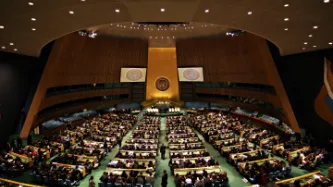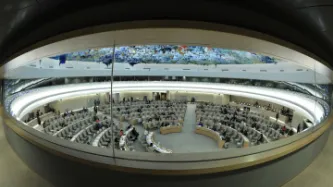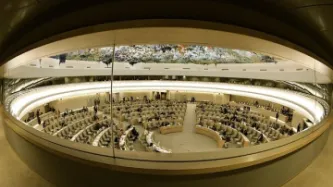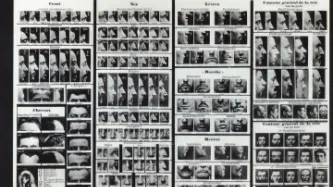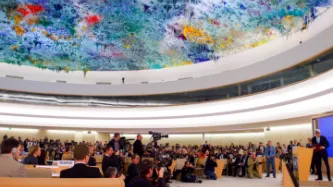Search
Content type: News & Analysis
GDPR was hard won. PI, together with other civil society actors, fought from the beginning for a version of the law that offers the strongest rights and protections in the face of intense industry lobbying.
Holding the hidden data ecosystem to account
Two years ago, we committed to using GDPR to seek to hold to account the hidden data ecosystem - those companies that amass and exploit large amounts of our data for profit.
Here’s some of the action we’ve taken:
In Nov 2018,…
Content type: Long Read
By Valentina Pavel, PI Mozilla-Ford Fellow, 2018-2019
Our digital environment is changing, fast. Nobody knows exactly what it’ll look like in five to ten years’ time, but we know that how we produce and share our data will change where we end up. We have to decide how to protect, enhance, and preserve our rights in a world where technology is everywhere and data is generated by every action. Key battles will be fought over who can access our data and how they may use it. It’s time to take…
Content type: News & Analysis
By Ailidh Callander, Legal OfficerThis piece first appeared in the 500th edition of the Scottish Legal Action Group Journal (2019 SCOLAG (500, June) 124Political scandal, stronger regulation on privacy but what about social protection?In an increasingly digitalised and data driven world, an era of government and corporate mass data exploitation, the right to privacy and data protection and what this means in practice is more important than ever. Surveillance is a power generator and opportunity…
Content type: Press release
Gus Hosein, Executive Director of Privacy International:
The US federal government's cruel zero tolerance immigration policy has received widespread and international condemnation. In addition to the policy's clear moral failure it is also in violation of the government's legal obligations under the International Covenant on Civil and Political Rights (ICCPR), which includes protecting families from unnecessary interference by the government.
The US government needs to understand that…
Content type: News & Analysis
7 October 2013
The following is an English version of an article in the September issue of Cuestión de Derechos, written by Privacy International's Head of International Advocacy, Carly Nyst.
To read the whole article (in Spanish), please go here.
The Chinese government installs software that monitors and censors certain anti-government websites. Journalists and human rights defenders from Bahrain to Morocco have their phones tapped and their emails read by security services. Facebook…
Content type: News & Analysis
Photo: Flickr/Elvert Barnes. Some rights reserved.
In the wider civil society space, the opportunities for travel come thick and fast. From the multi-stakeholder perspective, the Internet Governance Forum will be held during November in João Pessoa, Brazil. There is the Stockholm Internet Forum in, naturally, Stockholm. In freedom of expression there is the International Freedom of Expression Exchange Strategy Conference in Trinidad & Tobago, while End…
Content type: News & Analysis
Privacy International and twenty-two other organisations from around the world welcome the appointment of Mr Joseph Cannataci as the UN Special Rapporteur on the Right to Privacy.
Today, the President of the UN Human Rights Council (UNHRC) appointed Mr Cannataci to fill the post that was created by the Council in March 2015 to address the rising concerns about the enjoyment of right to privacy, particularly in the context of new communications technologies.
Mr Cannataci's…
Content type: News & Analysis
A groundbreaking report released today by the UN Special Rapporteur on freedom of expression, David Kaye, calls on states to ensure security and privacy online by providing “comprehensive protection” through encryption and anonymity tools, warning that blanket measures to restrict online privacy fail to comply with human rights norms.
To support the findings contained in the Special Rapporteur's report, Privacy International, the Harvard Law School's International Human Rights Law…
Content type: News & Analysis
Privacy laws around the world are under threat by ambitious governments and voracious industry. Sixty-six privacy, digital rights and consumer rights organisations from around the world have joined forces to push back against attempts to weaken European privacy legislation. The coalition today wrote to the President of the European Commission (the civil service of the European Union) to demand that high levels of privacy protections must be respected in Europe's ongoing revision of its data…
Content type: News & Analysis
Following the successful adoption of the resolution to establish a UN Special Rapporteur on the right to privacy, attention now turns to identifying highly qualified individuals for the position. All applicants must submit an application for the mandate through the Office of the High Commissioner for Human Rights online application system available here.
The deadline for receipt of nominations is 30 April 2015.
At the 29th session of the UN Human Rights Council (15 June – 3 July…
Content type: Press release
The UN's top human rights body, the Human Rights Council, today has passed a landmark resolution endorsing the appointment of an independent expert on the right to privacy. For the first time in the UN's history, an individual will be appointed to monitor, investigate and report on privacy issues and alleged violations in States across the world.
The resolution, which appoints a Special Rapporteur on the right to privacy for an initial period of three years, was spearheaded by Germany and…
Content type: News & Analysis
Today, on behalf of 92 human rights organisations around the world, an oral statement was delivered before the United Nations Human Rights Council, calling on the Council to establish a UN Special Rapporteur on the Right to Privacy
Negotiations are on-going at the UN Human Rights Council in Geneva for the establishment of a UN Special Rapporteur on the Right to Privacy. If established, the Rapporteur will provide much-needed leadership and guidance on developing an understanding of…
Content type: News & Analysis
Today’s report on the right to privacy in the digital age by the UN High Commissioner on Human Rights, commissioned by the General Assembly in December 2013, marks an historic turning point in the international discourse around privacy and surveillance.
Privacy International believes the report will dramatically change the international conversation on the implications of surveillance and intelligence for human rights. Most importantly, it puts beyond doubt that the very existence of…
Content type: News & Analysis
What do Egypt, Kenya, Turkey, Guinea, and Sweden have in common? Despite having a Constitutional right to privacy, they are adopting and enforcing policies that directly challenge this human right.
These states are also up for a Universal Periodic Review this year before the United Nations Human Rights Council. UPRs are a mechanism within the Council aimed at improving the human rights situation in all countries and address human rights violations wherever they occur.
Despite having…
Content type: News & Analysis
In response to a consultation being undertaken by the UN in accordance with December’s General Assembly resolution on the right to privacy in the digital age, Privacy International today called on the United Nations to recognise that mass surveillance is incompatible with human rights.
The submission to the Office of the High Commissioner to Human Rights confronts some of the biggest challenges to the right to privacy in the digital age, debunks some of the justifications put forth…
Content type: News & Analysis
In the late eighteenth century in Germany, ‘anthropologist’ Johann Blumenbach published a degenerative hypothesis that linked cranium and facial profiles to supposed character traits and accordingly divided human beings into five different races: the Caucasian, Mongolian, Malayan, Ethiopian, and American.1
In the 1870s, Alphonse Bertillon, a police officer in France, started a trend to identify criminals based on facial characteristics, alongside subsequent use of the camera to…
Content type: News & Analysis
Privacy International this week submitted stakeholder reports to the United Nations Human Rights Council1 about the human rights records of China, Senegal and Mexico. The reports, prepared in preparation with our partners in the respective countries, analyse the extent to which the right to privacy is respected and protected, and detail instances of privacy violations.
The stakeholder reports will inform the questions asked by members of the Human Rights Council when China, Senegal and…
Content type: News & Analysis
Trade has often been a positive driver in encouraging countries to adopt data protection laws, to ensure compliance and ability to conduct business with the European Union and other privacy-respecting partners. However, when free trade agreements are negotiated in secret and influenced by powerful business interests, the result is a severe watering down of existing privacy protections.
There is a high risk of this happening in the free trade negotiations between the European Union…
Content type: News & Analysis
The long-awaited release by Microsoft today of data about the number of law enforcement requests received and complied with by the company represents an important step forward in the ongoing challenge of understanding the scale of government access to communications information.
The data, the first set released by Microsoft, reveals that it received 70,665 requests for communications content and data in 2012, pertaining to 122,015 users or accounts. Communciations data was disclosed…
Content type: News & Analysis
We are the raw material of the new economy. Data about all of us is being prospected for, mined, refined and traded...and most of us don’t even know about it.
Every time we go online, we add to a personal digital footprint that’s interconnected across multiple service providers, and enrich massive caches of personal data that identify us, whether we have explicitly authenticated or not.
That may make you feel somewhat uneasy. It's pretty hard to manage your digital footprint if you can't even…
Content type: News & Analysis
Privacy International asked lawyers, activists, researchers and hackers at Defcon 2012 about some of the debates that thrive at the intersection between law, technology and privacy. We also wanted to know why privacy matters to them, and what they thought the future of privacy looked like. This video is a result of those conversations.
Featuring Cory Doctorow, Kade Crockford, Jameel Jaffer, Dan Kaminsky, Chris Soghoian, Marcia Hoffman, Moxie Marlinspike, Phil Zimmerman, Hanni Fakhoury…
Content type: News & Analysis
Anonymous proxy service HideMyAss.com - "a leading online privacy website" according to its own homepage - today admitted handing over user logs to law enforcement agencies.
We commend companies running privacy-protecting services. We need more like them. But we also need them to keep their word. Their website claims "Our free web proxy is a secure service that allows you to surf anonymously online in complete privacy" and their pro paid-for version promises that users can "…
Content type: News & Analysis
Governments have no automatic right of access to our communications. This will sound highly controversial to some, even downright radical. But the demands of national security and crime prevention do not, in fact, immediately trump every other right and responsibility in the complex relationship between citizen and state.
The recent Skype argument is a great example. Skype has always prided itself on being a secure method of communication. Businesses, government agencies, human…
Content type: News & Analysis
In Homer’s Iliad, the gods Juno and Saturn have great desire for each other, and Saturn wishes to lie with Juno on the top of Mount Ida. Juno protests Saturn’s advances, exclaiming: “What if one of the ever-living gods should see us sleeping together, and tell the others? It would be such a scandal that when I had risen from your embraces I could never show myself inside your house again”. Luckily for Saturn, Juno knows of a place with “good strong doors” where they can meet secretly and…
Content type: News & Analysis
Last year, Index on Censorship published an interview with Google’s chief legal officer and senior vice president David Drummond. The company was still reeling from the aftermath of the news that an attack had been launched on Gmail from China. Drummond proposed that free speech needed to be part of the international agenda at multilateral and bilateral trade discussions, just like piracy. 'Western governments whose economies certainly benefit from the internet sector should make this happen,'…
Content type: News & Analysis
Not since the 1990s has the internet been so exciting. With its use by political activists and journalists around the world, we can now again entertain the discussions that the internet brings freedom. Digital data traverses routers with little regard to national boundaries and so traditional constraints not longer apply. So it is no surprise that protestors on the streets of Tehran or Cairo are using the internet to organise. We like to believe in the freedom of the internet again, after…








